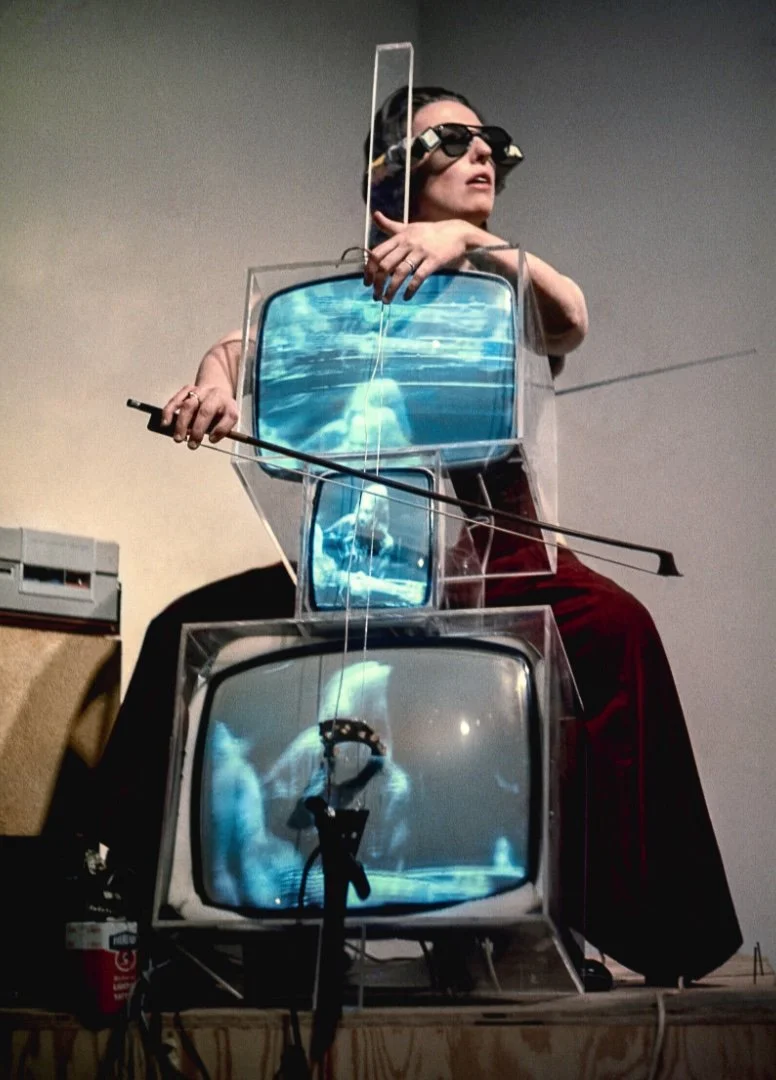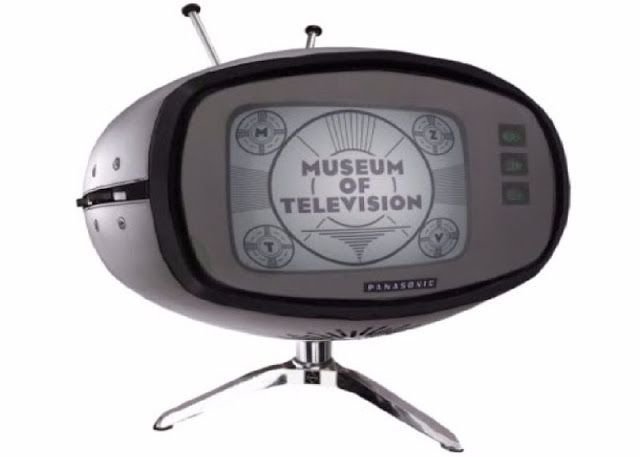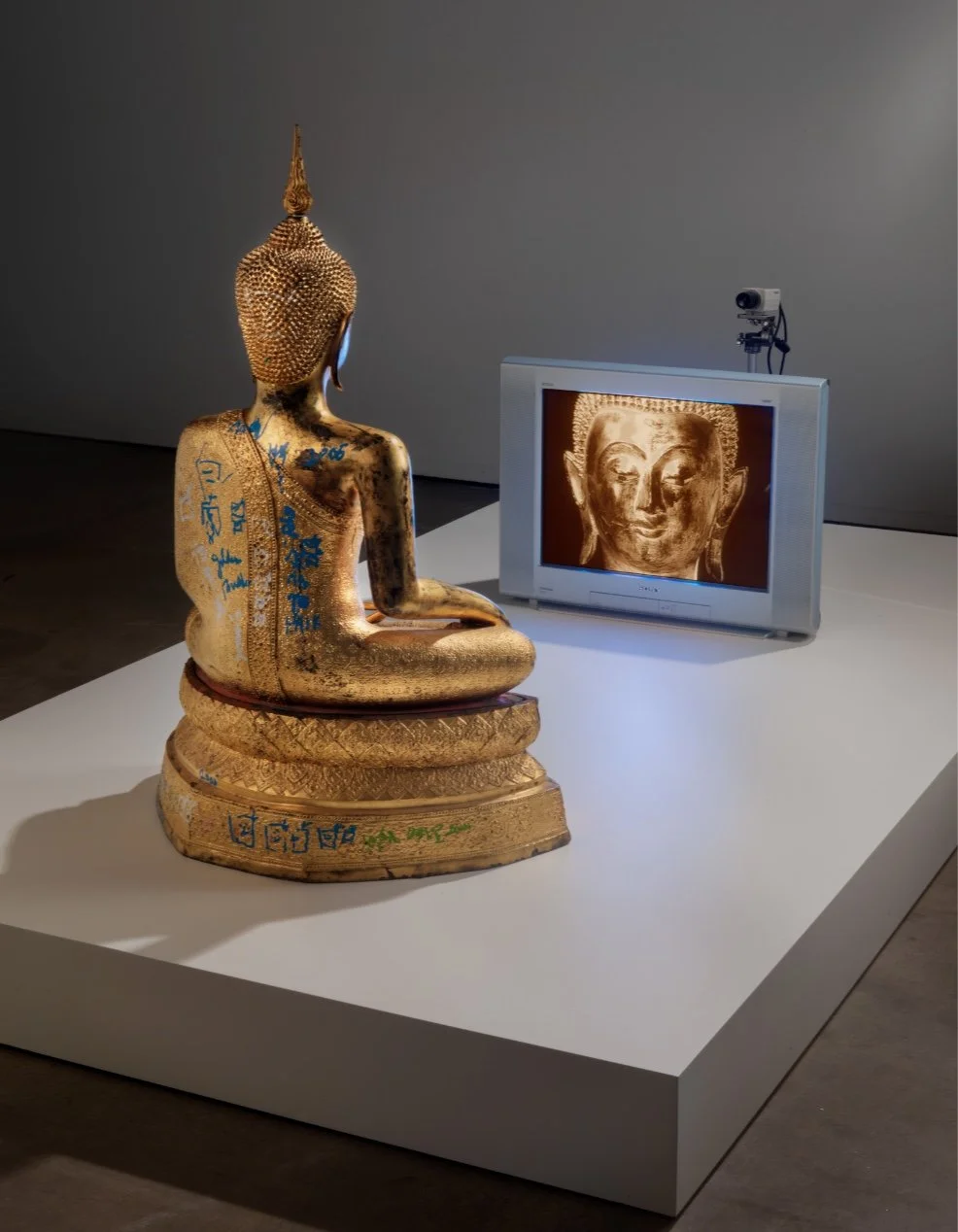By The Landlord
“Television? The word is half Greek, half Latin. No good can come of it.” – C. P. Scott
“Television is a window to the world and a mirror to our lives.” – Fred Rogers
“Television is an invention that permits you to be entertained in your living room by people you wouldn't have in your home.” – David Frost
“The sky above the port was the color of television, tuned to a dead station.” – William Gibson
“Television could perform a great service in mass education, but there's no indication its sponsors have anything like this on their minds.” – Tallulah Bankhead
“If it weren't for electricity, we'd all be watching television by candlelight.” – George Gobel
“Television knows no night. It is perpetual day. TV embodies our fear of the dark, of night, of the other side of things.” – Jean Baudrillard
“Color television! Bah, I won't believe it until I see it in black and white.” – Samuel Goldwyn
“Television is a medium of entertainment which permits millions of people to listen to the same joke at the same time, and yet remain lonesome.” – T. S. Eliot
“Television has proved that people will look at anything rather than each other.” – Ann Landers
“Television has changed the American child from an irresistible force to an immovable object.” – Laurence J. Peter
“When I got my first television set, I stopped caring so much about having close relationships.” – Andy Warhol
“In Beverly Hills... they don't throw their garbage away. They make it into television shows.” –Woody Allen
The telly. The idiot-box, gogglebox, or just plain old box. The tube. The small screen. The baby-sitter. The electric fireside family focus point. The cathode ray hearth of comfort. This invention has utterly changed human lives in its relatively short history, evolving even more so in the last decade. Today, 21st November, as it happens, is World Television Day, a possibly meaningless as well as meaningful UN-sponsored annual recognition of the power and influence of this huge medium, one that entertains, educates, distils, distorts, distracts, directs our view of the world and ourselves.
TV is a bit like chocolate or coffee. It's a comfort, a bit of a stimulus, a guilty pleasure, often fabulous when focused and rationed and of high quality, and should really be seen as little treat or luxury, but more often than not becomes a bland brain-numbing habit, and as architect Frank Lloyd Wright put it, “chewing gum for the eyes”. But who doesn’t enjoy sitting down to some at the end of the day?
21st November is World Television Day
It represents the very best and worst of culture, can be a profound and moving and fantastic perspective of human nature and and the natural world, from wildlife to documentary to drama and creative and sport entertainment for all ages, from The Muppets to The Simpsons, The Sopranos to The Wire. What TV represents the best of human creativity for you and how does music reflect that?
The gathering dominance of reality TV can have occasional heights, but also can descend to the very lowest of the crotch- and boob-staring, mud-snorkelling, bug-eating, self-demeaning low. Has it led to the populist Trump-style dumbed down nightmare situation we're in now? Possibly, but media and manipulation is nothing new. More on that below.
So then, as cold winter makes staying in a more attractive prospect, and the glowing rectangular pulse of transmitted light becomes an increasingly attractive magnet, this week we're seeing songs through the prism of the small screen, where such music is inextricably linked to the context of television, either because it began life as a theme or incidental accompaniment to some programme, or started as a more conventional form of release, but then became adopted by and indelibly associated with something on the box.
Television broadly as a lyrical theme, and a small pick of TV themes have both been given some topical attention in the past, but this has a different approach, and as much has changed since then, there are bound to be some relevant overlaps.
It's a massive subject, and for this introduction, I can only briefly surf the channels of idea and inspiration. But let's begin with a rather oddball and charmingly, child-like, analogue approach, as Bjork, back in the winter of 1988, opens up the back of a television set, not to watch what it transmits, but to explore the almost Lego-like “little city” of its various diodes, wires, and circuit boards, which she compares to an a world of streets, buildings and lifts. (This digitally restored footage is also an ad for the software, but you can skip over that bit.)
“Television o actually started in Britain in 1936, and it was a monopoly, and there was only one broadcaster and it operated on a license which is not the same as a government grant,” summarises the great David Attenborough, and from that original British Broadcaster Corporation, and others elsewhere, it has evolved enormously now to the point to which not only are there hundreds of channels, but where streaming services and other forms such as YouTube mean our the internet and television have more or less merged into one.
Once we were fairly likely to watch the same channel and programme simultaneously, from coverage of the moon landings to Thursday's Top of the Pops, or Live Aid and talk all about it the next day at school or work, but now those experiences have fragmented into millions of individual pieces.
But of the most interesting figures in TV and video culture is the Korean artist Nam June Paik, an eccentric genius who was part of the Fluxus movement, who particularly used the medium especially from the 1960s, 70s and 80s to say much about society, and was even something of a prophet, envisioning in 1974 “a broadband communication network” and a world in which “someday everybody will have his own TV channel”. How prescient on everything from YouTube to social media. The 2023 documentary of his life and work, Moon Is the Oldest TV makes for wonderful viewing. Here's the trailer, but the full film is also on this link.
And here is a summary of some of the ways he predicted the future:
TV is a visual form, and is often criticised for its passivity-pushing effect, in contrast to the more theoretically cerebral media of print. But how true is that? There are many we've heard from also more in the Bar who add to this.
“Television is simply automated daydreaming,” reckons Lee Loevinger.
“In Russia, writers with serious grievances are arrested, while in America they are merely featured on television talk shows, where all that is arrested is their development,” adds Neil Postman, author of the influential Amusing Ourselves to Death: Public Discourse in the Age of Show Business (1985).
“When a country wants television more than they want clean water, they've lost their grip,” pipes in Lewis Black.
“Watching television is like taking black spray paint to your third eye,” adds the great standup Bill Hicks, darkening the view.
“Television is a device that permits people who haven't anything to do to watch people who can't do anything,” quips Fred Allen.
And of course there's always the classic by Groucho Marx: “I must say I find television very educational. The minute somebody turns it on, I go to the library and read a good book.”
One book-reading and writing- intellectual behemoth who has as much insight into television's reach as any of the last century is the linguistic and political professor Noam Chomsky, whose work has greatly influenced the great documentary maker and archive footage specialist Adam Curtis. “Everyone knows that when you look at a television ad, you do not expect to get information. You expect to see delusion and imagery,” summarises Chomsky.
Much more on this can be found in the profound, cerebral documentary Manufacturing Consent:
The vested interests massive corporations have always been at play, perhaps more subtlety in the past than now, but is there a cultural effect.
“The standardisation of world culture, with local popular or traditional forms driven out or dumbed down to make way for American television, American music, food, clothes and films, has been seen by many as the very heart of globalisation,” suggests the American literary critic and philosopher Fredric Jameson.
But has television watching per se, independent of what programmes who actually watch, changed human beings? Here’s Andy Warhol, who had a oddball talent for summing up society with his offbeat understanding of the media. In 1968 he was shot and badly injured by the troubled radical Valerie Solanas who had worked for him at Manhattan studio, The Factory.
“Before I was shot, I always thought that I was more half-there than all-there - I always suspected that I was watching TV instead of living life. Right when I was being shot and ever since, I knew that I was watching television.”
Reflecting always in the present: Nam June Paik’s Golden Buddha (2005)
It’s this inverted twilight world that always seems to accompany our experience of the box. But of all films about the medium, it’s perhaps the razor sharp 1976 satirical black comedy, Network, directed by Sidney Lumet and written by Paddy Chayefsky that really hits the button. It concerns a news network struggling for ratings, and stars Peter Finch as Howard Beale, an exhausted anchor presenter who learns he has two weeks left on air. The following night, he announces to his audience that he will commit suicide on next Tuesday's newscast. Avoiding getting the immediate sack thanks to his executive friend, William Holden as Max Schumacher, he is set to apologise on the next broadcast, but then unpredictabely goes into a rant about the complete untruth of network news and calls for his audience to turn away form the TV shout out of their windows: “I’m mad as hell …!”
The effect is profound, and yet predictable, the audience conforming in their non-conformity, to the delight of hard-nosed producer Diana Christensen, played icily by Faye Dunaway, who then exploits the situation and creates a madcap The Howard Beale Show, in which the unhinged anchor becomes “the mad prophet of the airwaves”. It’s a brilliant film that has influenced many other satires, from Monty Python’s The Life of Brian to The Day Today and The Thick of It, and expresses timeless truths about the nature of TV culture and audience behaviour.
But that’s enough crazy news coverage on this topic from me. It’s time to turn over to you, discerning readers, and to move to the music channels of your choices. Helping do the fine tuning and manning the network is the generous global overview of Loud Atlas! Place your television-influenced, defined- or redefined songs in comments below, for deadline at 11pm on Monday UK time, for playlists published next week. Tune in and turn over in your minds…
Nam June Paik’s massive TV installation, The More The Better, at The Gagosian (1988)
New to comment? It is quick and easy. You just need to login to Disqus once. All is explained in About/FAQs ...
Fancy a turn behind the pumps at The Song Bar? Care to choose a playlist from songs nominated and write something about it? Then feel free to contact The Song Bar here, or try the usual email address. Also please follow us social media: Song Bar Twitter, Song Bar Facebook. Song Bar YouTube, and Song Bar Instagram. Please subscribe, follow and share.
Song Bar is non-profit and is simply about sharing great music. We don’t do clickbait or advertisements. Please make any donation to help keep the Bar running:




